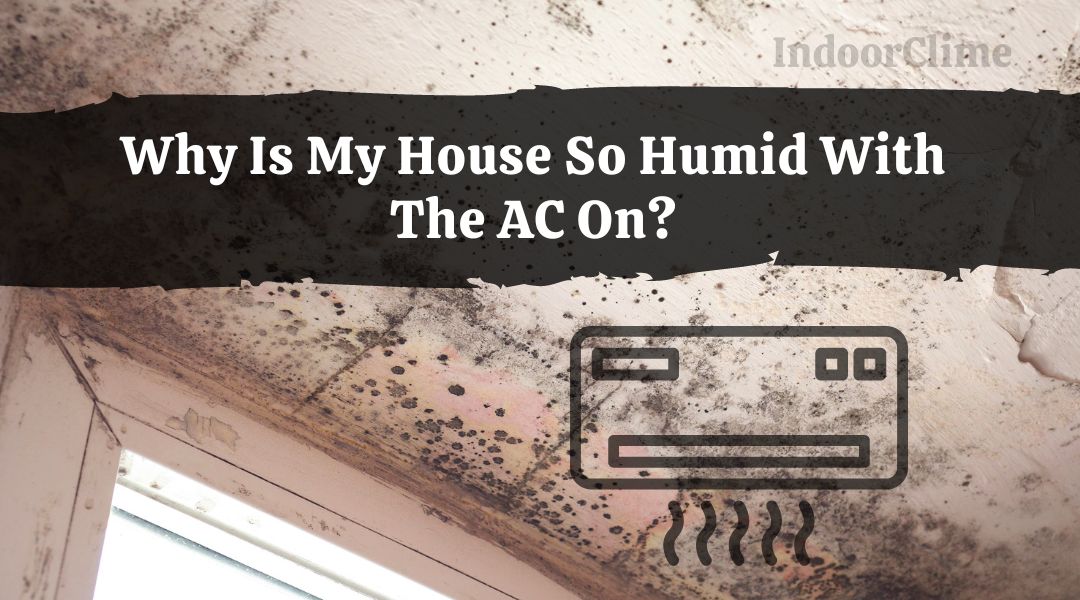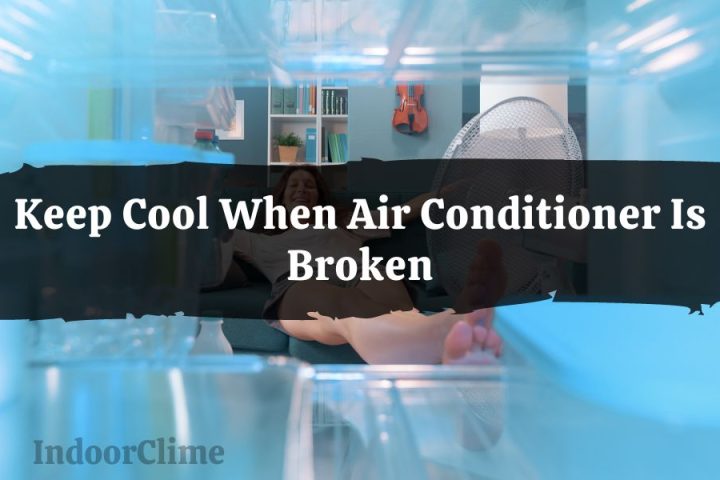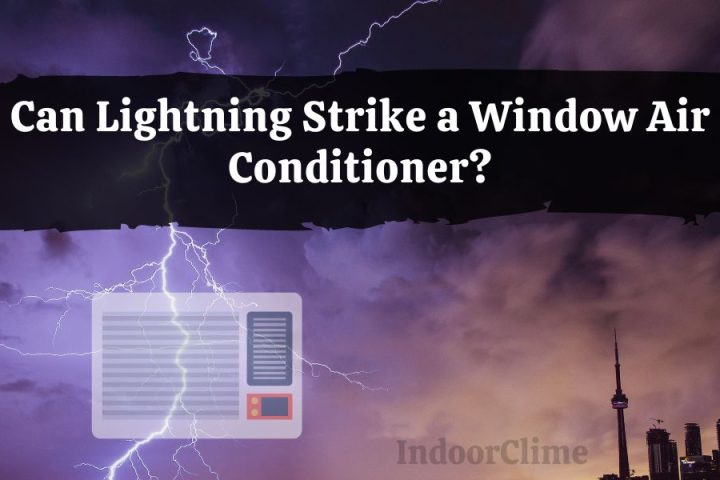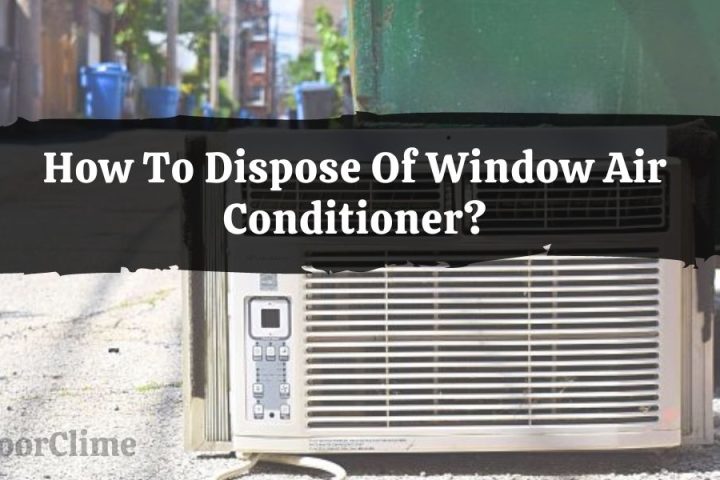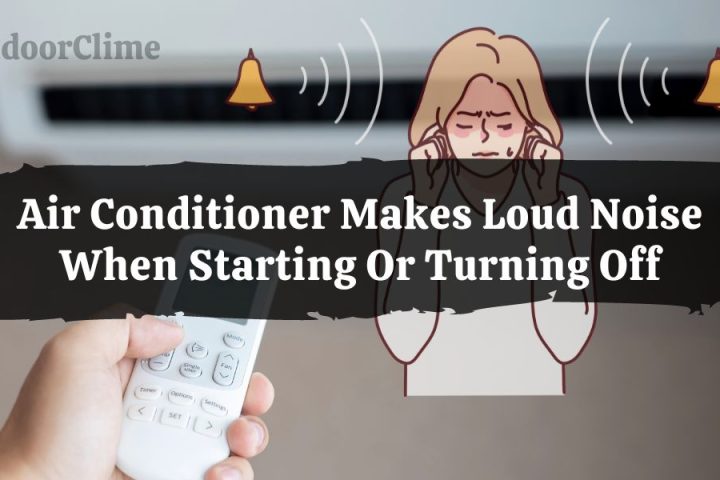Excessive humidity is neither pleasant nor enjoyable. It’s even worse if your home’s humidity and moisture levels are excessive. It can be hot, sticky, and downright disgusting.
Humidity levels in your home can have an impact on your health as well as your HVAC and air conditioning systems. Therefore, striving to maintain a pleasant temperature and an appropriate degree of humidity is preferable.
We’ll go through the reasons for excessive humidity even when the air conditioner is on, the problems it might create, and how to cope with it in this post.
Your house is humid even with the AC on because outdoor humidity is high, or you may be unaware of your fan settings and unmaintained condenser and evaporator coils.
Why Is My House So Humid with the AC Unit On?
Excess humidity can exacerbate the discomfort of the summer heat. Therefore, residents of the United States use air conditioners and heat pumps not just for cooling but also to help control indoor humidity levels.
A variety of factors can cause high home humidity. However, the following are frequent reasons your home’s humidity levels may remain high even when the air conditioner is turned on.
Outdoor Humidity Levels are Very High
Controlling indoor relative humidity levels become more challenging when humidity levels are incredibly high in the outdoor environment. Southern California is experiencing record-breaking heat and humidity during the heatwave, undoubtedly contributing to the situation.
It’s common for an air conditioner to struggle with cooling and dehumidification during times like these. You’ll know the harsh conditions are to blame when external temperatures and humidity levels drop and inside humidity levels return to normal.
However, you can now try to obtain some comfort by limiting heat gain in your home so that your air conditioner doesn’t have to deal with such a heavy cooling load.
Using the Wrong Fan Settings
Air conditioners dehumidify the air as they cool it – extracting heat from the air lowers the air temperature, causing water vapor to condense and become too heavy to remain hanging in the air.
As a result, when the air conditioner runs, the blower fan forces the air through your vents, and the motor is chilly and less humid.
When the AC unit is turned off, you may use the blower fan and motor to provide steady air circulation throughout the house and the HVAC system – but no cooling.
The air from your vents feels muggier because the air conditioner is on. Many people believe their air conditioner is on because air flows out of the vents, but this is the blower, not the air conditioner.
When humidity levels are high, don’t always leave your blower on, as this could cause your home to be humid, although the air conditioner is on. Also, because the blower is placed inside the interior cooling system unit, it’s easy to mistake it for the air conditioner running.
Instead, switch the fan setting on your thermostat to AUTO so that the blower only works when the air conditioner is on.
Frozen Evaporator Coils
The evaporator coil inside the indoor cooling unit can freeze during the heat, making the house feel more humid. Ice and frost on the coil surface hinder the refrigerant from collecting heat, lowering the air temperature, and removing moisture. Issues include:
- A filthy air filter.
- A clogged condensate drain.
- A blocked condenser unit.
- Low refrigerant levels can cause frozen coils.
When coils freeze, the air conditioner must be turned off until thawed. Look for any problems that might be causing the coils to freeze.
Examine the filter, replace it if necessary, and clear dirt from the outdoor unit. Contact a professional HVAC contractor to remove condensate drain clogs and detect and fix leaks in your air conditioner.
Dirty Condenser Coils
Another cause of excessive humidity in homes is dirty condenser coils in the outdoor unit. These coils allow refrigerant to escape the heat absorbed from indoor air onto the outside.
Unfortunately, dirt and dust collect on the surface of the coils, obstructing heat transfer and preventing the refrigerant from performing its function. The air conditioner will be reduced and effectively remove humidity from the air if refrigerant cycles are disturbed.
This complication can be solved by cleaning the coils. Cleaning the condenser coils is often included in AC maintenance tune-ups, so make an appointment if you haven’t already this year. Your HVAC expert can also conduct this service when you contact for air conditioner repairs.
How Do I Lower the Humidity In My House With AC?

Moisture above 60% can encourage dust mites to thrive; mold and mildew may develop if it rises above 70%. In addition, certain substances might aggravate allergies and asthma. Fortunately, you can reduce interior humidity by turning on your air conditioner.
Switch The Fan To AUTO Mode
Cold air is pumped in as the refrigerant coils in your air conditioner absorb heat and moisture. The moisture remains on the coils and gathers. If the fan is turned on, the wetness will continue to be blasted inside.
When you set it to AUTO mode, the air conditioner will turn off between cooling cycles. So instead of contributing to the humidity level within your home, the condensation on the coils can be appropriately drained.
Change The Fan’s Speed
An air conditioner is less effective at removing moisture at more incredible fan speeds. Cooler air enters your home more quickly, but humidity is not adequately eliminated.
Lower airflow speeds result in a colder indoor coil, removing more humidity and maintaining temperature settings.
Replace The Filter Regularly
A clogged filter increases the chance of dust and debris entering the system. It can also trap moisture in the ducts, causing them to accumulate.
Increased indoor humidity can lead to the formation of mold and bacteria in the air, which can damage your health. AC filters should be cleaned or replaced once a month in general.
Clean the Coils
When a coil is unclean, it is less effective at removing heat and humidity. As a result, your home will be reduced fantastic, and moisture may accumulate inside.
In addition, dirty coils can be caused by a clogged filter, in which the blower fan draws particulates into the system. To avoid this, clean the coils according to the manufacturer’s instructions.
Install a Dehumidifier for the Entire House
The moisture in indoor air might be significantly reduced by running your air conditioner and a dehumidification system simultaneously. A whole-house dehumidifier can lower the demand for an air conditioner, allowing it to remove less moisture.
Maintain A Sufficient Supply Of Refrigerant
Check the refrigerant charge regularly. Heat or humidity may not be adequately eliminated if it runs low. Severe problems like a frozen coil or compressor failure can occur when this goes untreated.
Use A Thermal Expansion Valve To Prevent Overheating
A thermal expansion valve, or TXV, adjusts the amount of refrigerant by opening and closing. Depending on the temperature, the system receives just what it requires. A TXV, in effect, increases the ability of the evaporator coil to remove heat and humidity in various situations.
You can do numerous more things to help your air conditioner reduce humidity. For example, you can lower humidity and make your AC more reliable by boosting airflow, reducing moisture supplies in basements and crawl spaces, and changing your behaviors, such as shorter showers.
Does AC Cause More Humidity?

Your air conditioner does indeed remove humidity and is not the reason to rise in moisture. It dehumidifies the interior air by detaching both heat and humidity.
Too much condensation drains out of your unit through the condensate pan behind the evaporator coil after the refrigerant absorbs the moisture and warmth from the indoor air.
However, people frequently assume that an air conditioner can replace a dedicated dehumidifier because it has some dehumidifying characteristics.
The truth is that while air conditioners remove some humidity, moisture removal is merely a side effect of these systems. The evaporator coils in the system chill the air, which helps to remove moisture. The system’s primary goal, however, is to cool the air. That’s precisely what it’s made to do.
On the other hand, a dehumidifier is designed to dehumidify air while borrowing much of the architecture of an AC system. However, it performs considerably more effectively. The atmosphere in the room is drawn straight into the evaporator coils of the device, where it is rapidly dehumidified.
As a result, the air is withered and closer to the same temperature as when it enters the device when it is exhausted.
People Also Ask
Will running the AC fan reduce humidity?
Your fan will turn off between cooling cycles if set to AUTO. This gives the moisture on the cooling coils enough time to accumulate and drain outside, as it should. However, turning your fan on will run continuously, sucking moisture back into your home.
AUTO—Only when your air conditioner blows chilly air this setting activates your fan. The fan turns off in between cooling cycles.
ON—When your air conditioner isn’t creating cool air, this option keeps your fan running.
Leaving your air conditioner on encourages moisture in your home to build up and reach mold-friendly humidity levels. Instead, keep your AC thermostat fan setting to AUTO to keep you and your family cool and healthy during summer.
How long should AC run to dehumidify?
AC units should run for roughly 15 to 20 minutes under ideal working circumstances before turning off. In warm temperatures, the cycles may be a little shorter. Remember that running the air conditioner for less than 10 minutes isn’t ideal because the air conditioner won’t be able to dehumidify the room effectively.
The relative humidity is between 30 to 50 percent for optimal health and comfort.
An air conditioner, sometimes known as a spot cooler, can manage humidity instead of a dehumidifier, which can be said for HVAC systems. Evaporator coils are used in modern HVAC systems to cause moisture to condense and leave the air.

